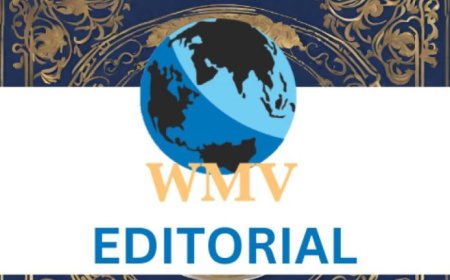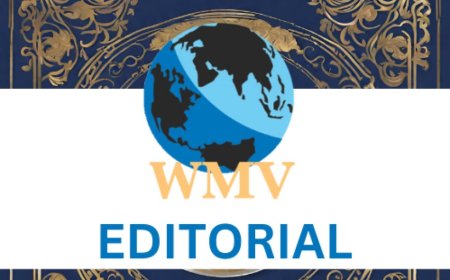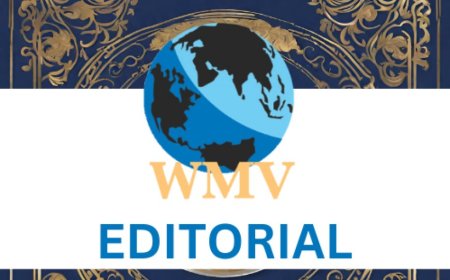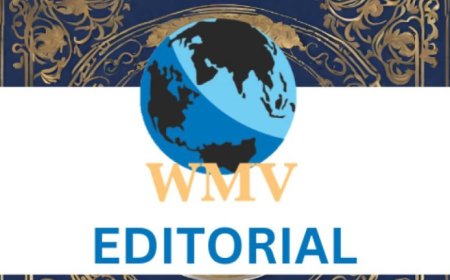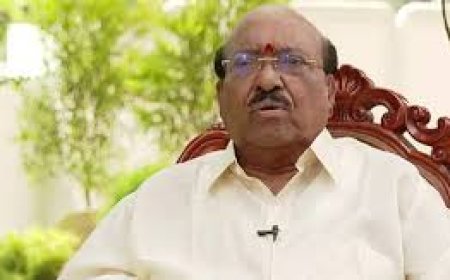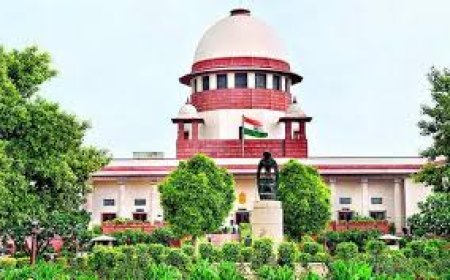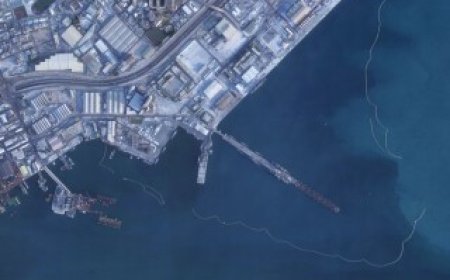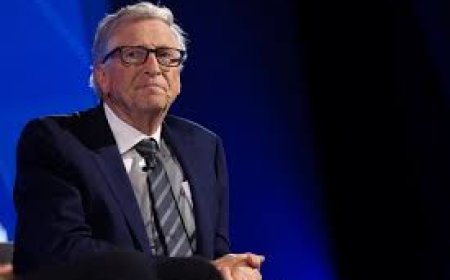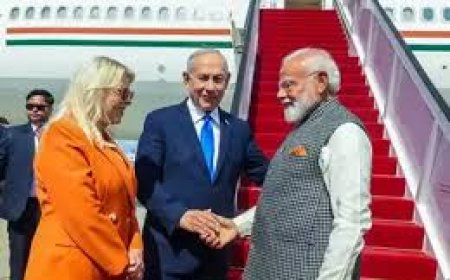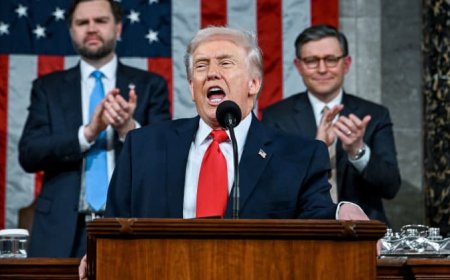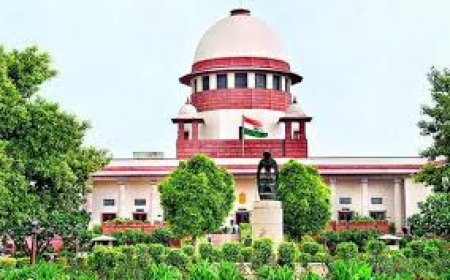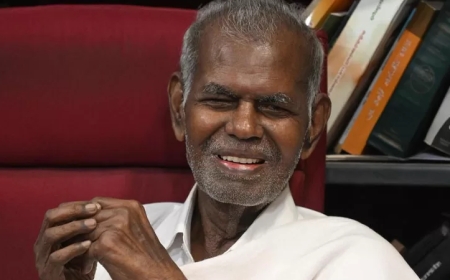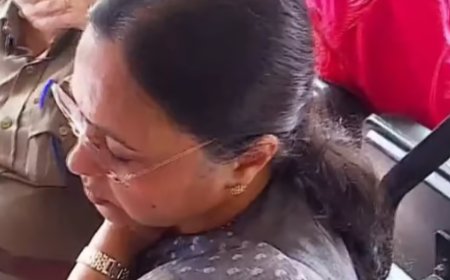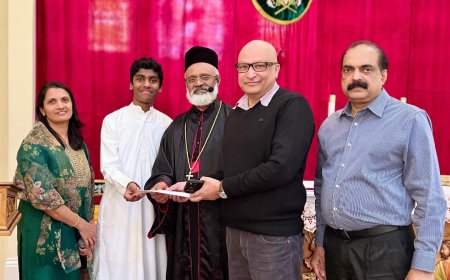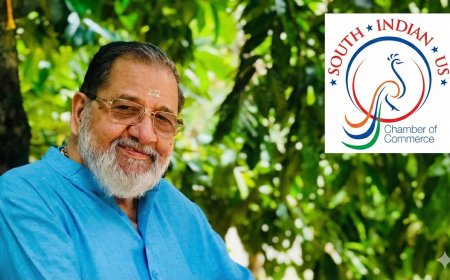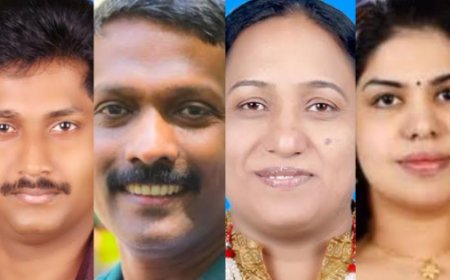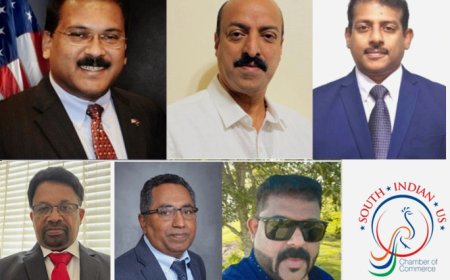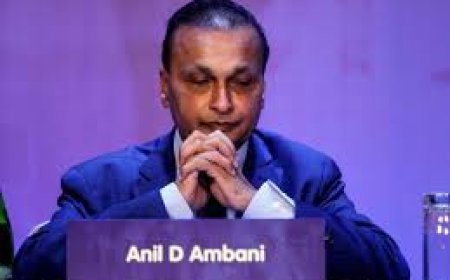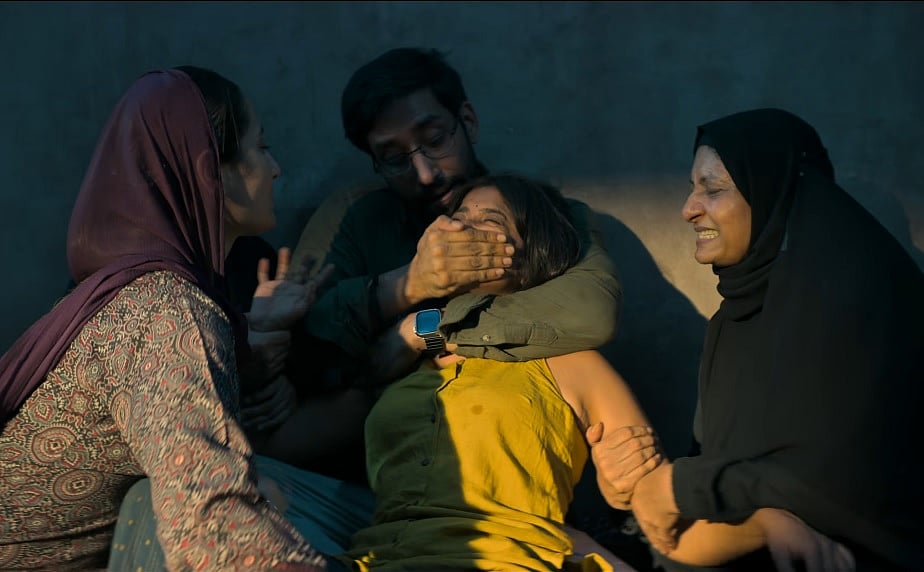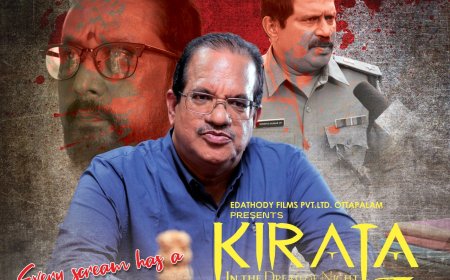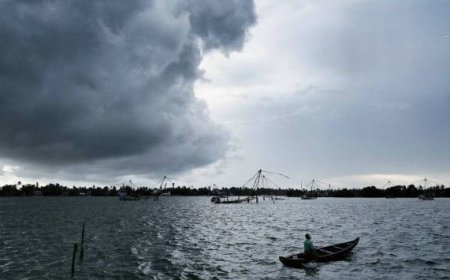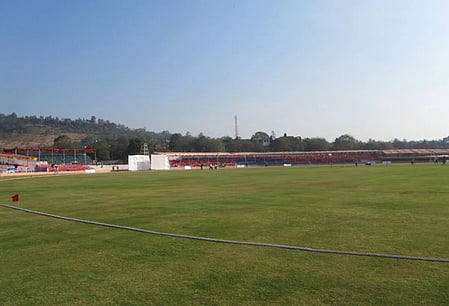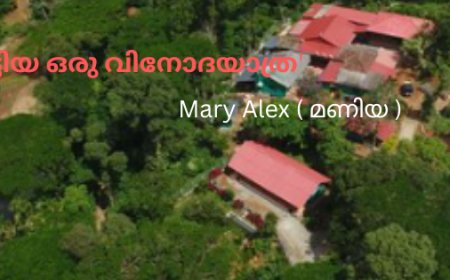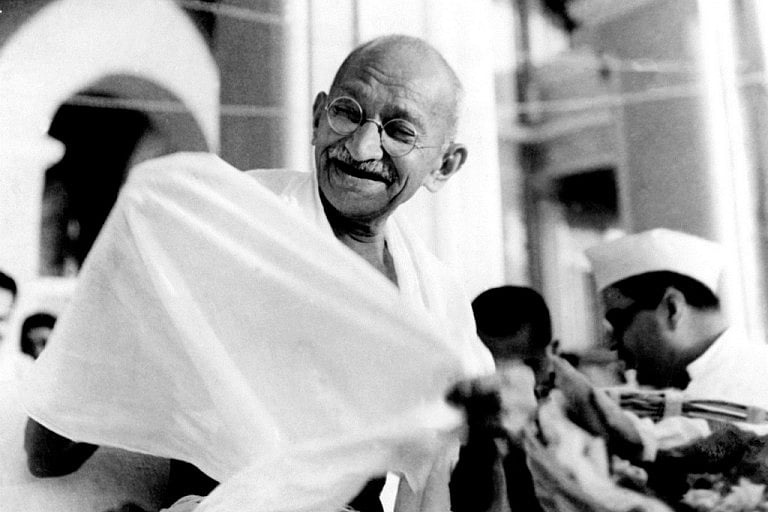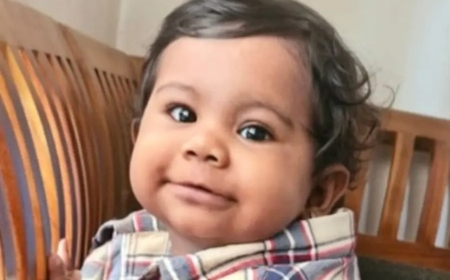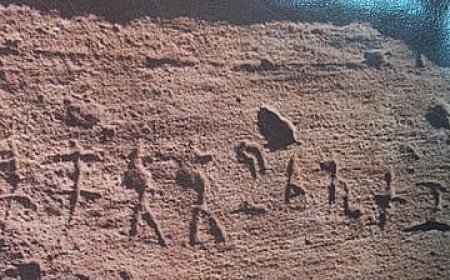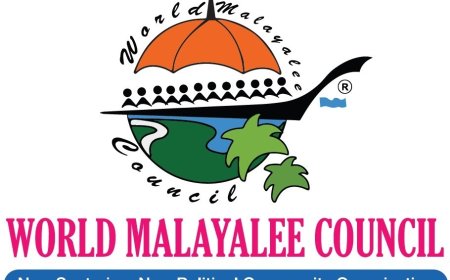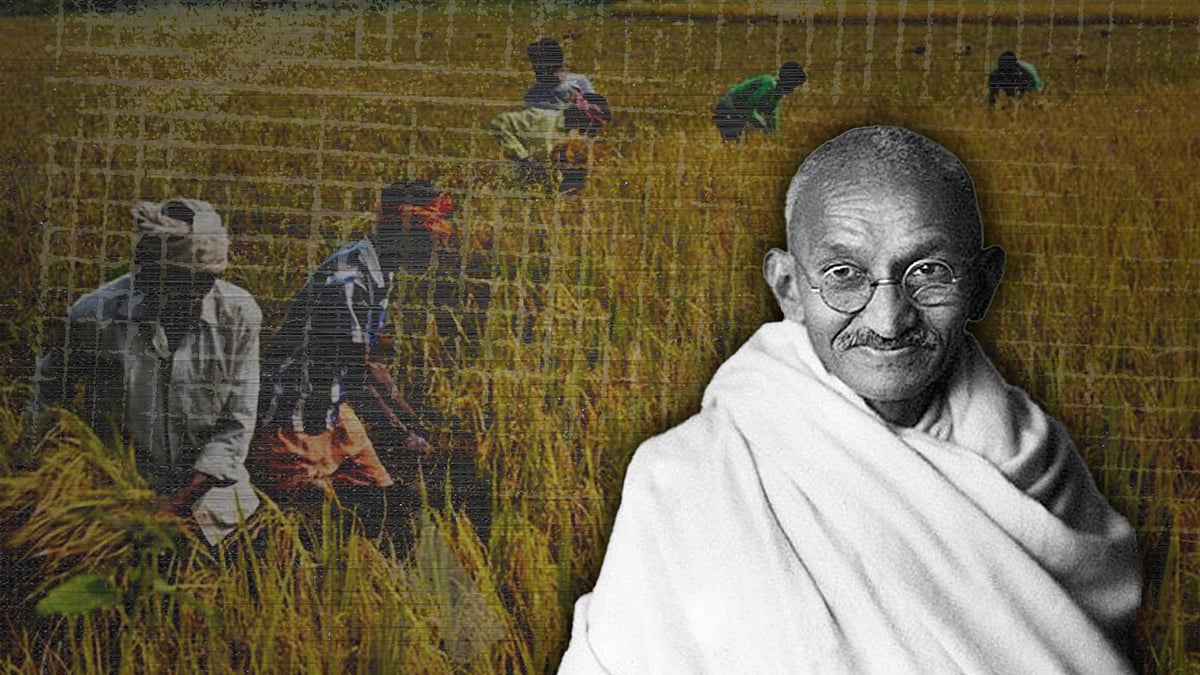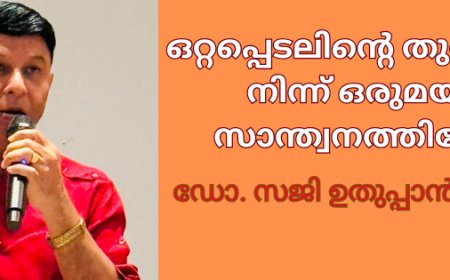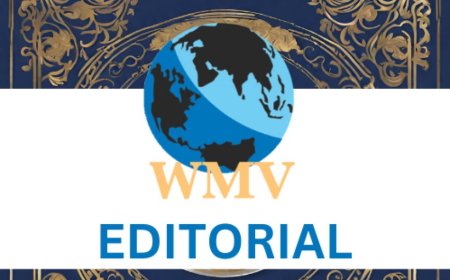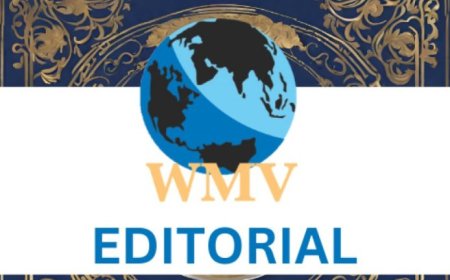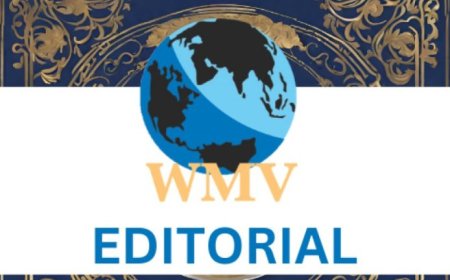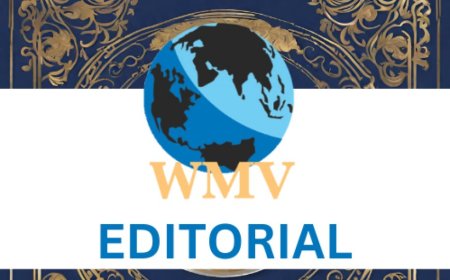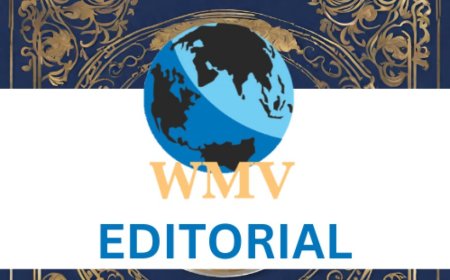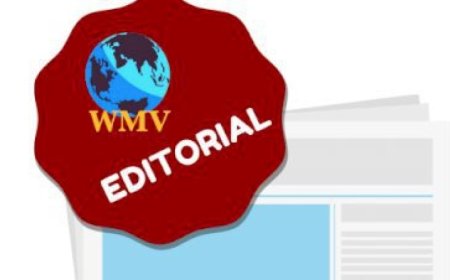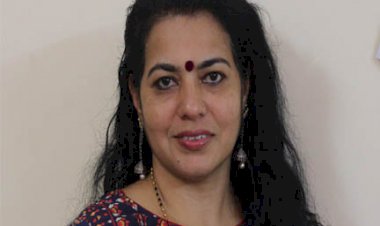Haiti’s prime minister is out. Here’s how it got so bad.
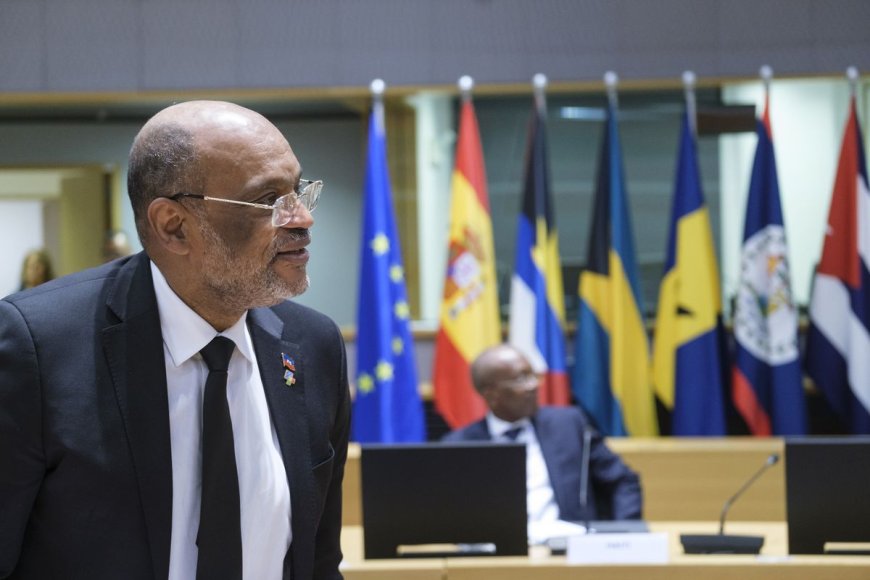
HAITI'S de facto president, Ariel Henry, announced his resignation Tuesday — the culmination of a political crisis at least two weeks in the making, but really three years or more.
Henry issued his resignation while stranded in Puerto Rico. A violent gang leader has cut off Haiti’s capital of Port-au-Prince from the rest of the country; blocked the main port, starving the country of food and fuel; and threatened “civil war that will lead to genocide.”
But while it looks like the gang’s coup attempt was successful, that doesn’t mean its leaders have exactly wrested power from Henry. He has agreed to step down following the formation of a transitional presidential council — a long-sought but imperfect tool to hold elections and begin building Haiti’s governmental institutions.
The crisis has been unfolding, in some ways, for decades, as corrupt leaders who lack the support of the Haitian people have allied with gangs and other armed groups to protect their business interests or maintain political power.
The US, France, and other powerful nations have also exacerbated the country’s instability for their material benefit or to suit their political interests — backing particular leaders at the cost of Haiti’s economic and democratic development.
Now, the country’s present political and security disaster — accelerating since the assassination of President Jovenel Moïse in 2021 — is at a boiling point. Armed groups, particularly the G9 alliance of gangs operating under Jimmy “Barbecue” Chérizier, have been menacing the Haitian people with near-total impunity as the unelected Henry hollowed out what remained of the country’s institutions.
The Biden administration’s support for Henry in the wake of Moïse’s assassination, alleged to have been carried out by a group of mostly Colombian mercenaries, helped chart Haiti’s course to the current moment.
Rather than working with the various Haitian-led civil society groups that came together to offer durable solutions toward democratic consolidation, the US, France, Canada, and other international actors treated Henry as the legitimate interlocutor for the Haitian people despite his extreme unpopularity and the fact that he was never sworn into his position.
In the nearly three years of Henry’s leadership, the immediate crisis of gang violence grew worse. According to the UN special envoy for Haiti, the number of gang-related violent incidents grew 122 percent from 2022 to 2023.
The judiciary, which was dysfunctional before Henry’s leadership, is largely unable to prosecute gang-related and corruption crimes and the terms of Haiti’s last remaining senators expired in January — leaving the government with no elected officials, as Henry indefinitely postponed parliamentary and presidential elections when he took power.
A US-backed effort to send in a multinational police force, to be led by Kenya, to support the Haitian National Police and attempt to stabilize the crisis is stalled due to both hesitancy from some parts of Kenya’s government and a lack of funding for the project.
There’s also the risk of further violence, as Chérizier has promised to fight any foreign force entering Haiti, as well as the troubled recent history of international interventions in Haiti.
At its core, sending in yet another external force to mitigate violence or catastrophe in Haiti fails to take into account the political roots of violence and dysfunction. While some sort of security intervention is necessary to save lives, there’s only so much that force can do if external actors fail to take seriously the Haitian-led political options that could help build a state that is accountable to its people.
How did it get so bad in Haiti?
First, it’s important to understand that when we talk about “gangs,” we’re not talking about the exclusively criminal business enterprises seen, for example, in Mexico’s drug cartels. Since at least the 1990s, various leaders in Haiti have relied upon gangs to assert their political will; Chérizier, for example, was allegedly affiliated with Moïse before his assassination. As the AP reported, “the state has grown fatally weak and gangs are stepping in to take its place.”
In other words, Haitian gangs are best understood as armed political actors. The current crisis is not just a security one but a political one as well.
So back to today: With his G9 gang, Chérizier has declared for years that he would take over the Haitian government. He’s positioning the current attempt as a systemic change that is more political than his past threats — but what he means by that, other than more violence and power for himself, is unclear.
The conditions are radically different now. Rival alliances of armed groups now seem to be working together — a dynamic that might not last, but one that helped force Henry to step down. G9 and G-Pep, the two main armed groups in Port-au-Prince, agreed to a pact of nonaggression, forming the joint Vivre Ensemble (Living Together), in September 2023. The same month, Henry was in the US pushing for a multinational security mission to Haiti to combat the growing gang violence.
At the time, gang leaders positioned the cooperation framework “as a coalition that would bring peace to the country,” said Diego Da Rin, a consultant for Latin America and the Caribbean at the International Crisis Group. “They were saying that they would stop any attacks on civilians, that they invited all the Haitian diaspora and people that have had to flee in recent years to come back to the country and promising that things would get back to normal.”
Vivre Ensemble is now, it seems, cooperating not only to oust Henry but also to attack critical infrastructure and to confront the Haitian police and any foreign personnel that assist the security forces. The alliance has managed to bring Port-au-Prince to its knees, pulling off two large jailbreaks over the weekend of March 2–3 as well as cordoning off the city, attacking police stations, and shutting down the city’s airport. Forces have also threatened Haiti’s second-largest airport, in Cap-Haïtien.
As a sign of his collapsing power, Henry hadn’t been able to get back to Haiti since leaving the country in February. He first attended a summit in Guyana, where leaders of the Caribbean economic bloc Caricom announced that Henry would hold elections in 2025. (Haiti has not had national elections since 2016.) He then headed to Kenya to try to hasten the deployment of the multinational security mission the UN approved back in October.
By the time Henry departed Kenya, Vivre Ensemble had already started its attacks on infrastructure in Port-au-Prince. His whereabouts were unknown until March 5, when he arrived in Puerto Rico following a failed attempt to land in the Dominican Republic, which shares the island of Hispaniola with Haiti.
“I don’t think it’s a good idea for the prime minister to be here … let him be in another country,” Dominican President Luis Abinader told the Financial Times on Saturday.
US Secretary of State Antony Blinken attended a summit Monday in Jamaica with Caricom leaders to try to find a solution to the crisis — or at least prevent it from spreading further.
For ordinary Haitians, the persistent violence and drama of the last few years has reached a critical point. The gangs have cut off Port-au-Prince from the rest of the country, so people cannot escape to the countryside; even if they could, much of it isn’t safe anyway, since armed groups have moved into other parts of the country.
In the context of the political vacuum and violence, Chérizier and Vivre Ensemble seem to be running the country, though Finance Minister Michel Patrick Boisvert is acting prime minister during Henry’s absence, per the Financial Times. But Chérizier is not the only gang leader vying for power in the present vacuum; Guy Phillippe, who helped lead a coup against former President Bertrand Aristide, and Johnson André (a rapper and social media star also known as Izo) are arguably more powerful than Chérizier.
Armed groups have been intimately connected with Haitian politics since the mid-20th century, when François “Papa Doc” Duvalier established the Tontons Macoutes to terrorize perceived enemies of his regime.
Such groups have been “deeply involved with political actors as well, in terms of control for elections, protecting businesses, going after rival businesses,” Jake Johnston, senior research associate at the Center for Economic and Policy Research, told Vox.
Rape, murder, arson, and extortion exploded under Henry’s rule, partly because state institutions like the police and the courts could barely function. Poverty and a lack of economic opportunities have also contributed to the rise of the armed groups.
As Haitian gangs can access funding and revenue — as well as massive arms imports from the United States — outside of the political structure, they’ve gained more independence, Johnston said. That enables them to operate more on their agenda.
That’s not to say Vivre Ensemble is detached from traditional Haitian politics; those relationships are typically quite fluid and murky. But earnings from drug running, kidnapping, and extortion have granted them more independence, and therefore more power.
A militarized solution to Haiti’s crisis isn’t enough
Henry, the US, and the UN have been calling for a multinational force to confront the gangs for more than a year now. Kenya ultimately stepped up to the challenge last year, volunteering to lead the force and committing 1,000 of its national police officers, but has put that promise on pause given that Henry — who agreed with Kenyan President William Ruto to secure the deployment earlier this month — has no future as Haiti’s leader.
Even under the best circumstances, it would take months to create a force of the necessary size, skills, and training to de-escalate the violence.
The logistics for the security mission as it stands are also highly troubled. Not only has Kenya’s High Court deemed it unconstitutional, but the US and other stakeholders have struggled to recruit personnel from other countries to support Haiti’s troubled national police force. Only $300 million out of a $600 million budget has been secured, and the mission has only an initial one-year approval. With those constraints — and given the fact that the Haitian National Police’s budget is already about $200 million — it’s not clear how the proposed security mission would accomplish its goals.
But it’s important to remember that although some kind of stabilizing force will be crucial, Haiti’s descent into gang violence is, at heart, a political and social problem.
“This really stems from a broken social contract by the state that is not accountable to a representative of the population, that has left behind huge swaths of the country,” Johnston said.
Thus far, the US and the UN have effectively treated Henry as Haiti’s legitimate government representative, which isn’t a view most Haitians, either in the country or abroad, share. That contributed to the perception among some constituencies that a security mission would only entrench Henry’s power.
Frameworks for a transition — which even the US now seems to be pushing for — do exist, thanks to a thriving and committed civil society.
The two primary proposals are the Montana Accord, which was negotiated by Haitian stakeholders in business, politics, and civil society and provides for a transitional council and the creation of an independent body to hold elections. It doesn’t include Henry in the political process, as the alternative December 21 accord framework does.
“There’s amazing organizing happening every day in Haiti, whether it’s at the capital or in rural communities,” Johnston said. “It’s super important to keep that at the forefront that Haitians are the ones fighting for their future every day and putting their lives on the line to do it.”
For now, the agreed-upon framework will appoint seven members for a transitional council coming from the Haitian private sector and political actors, including the Montana Accord and December 21 groups, with an observer from civil society and one from the religious sector. Once the council is formed, Henry has pledged to step down and dissolve his government; until an interim leader is decided upon, the council will effectively act as the government.
What happens in the immediate near term after Henry’s resignation is unclear — and there are doubts as to whether Haitian society, not to mention the gangs and other political actors, will see the transition as legitimate since it was proposed by the very outside forces responsible for Haiti’s current predicament.
Ellen Ioanes of Vox
